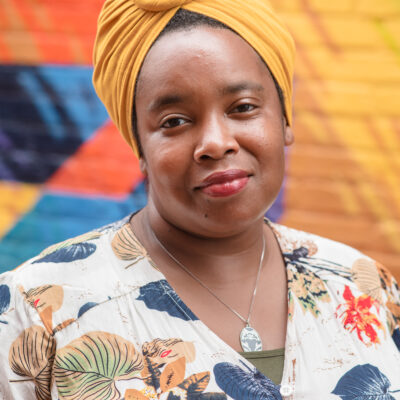On the surface, Juneteenth - also known as Freedom Day - marks the end of slavery in the United States. On, June 19, 1865, military troops went to Galveston, Texas to free the last of the enslaved Black people in the United States. Although the Emancipation Proclamation declared all enslaved people free two years prior, this reality was kept from a number of areas in the South. Many places, like Galveston, continued to hold and work slaves until troops arrived in the state and read the orders announcing the enslaved people’s freedom.
But that’s just the textbook definition (acknowledging the fact that the history of Juneteenth is often left out of our textbooks). For many years, Juneteenth has been a holiday for the Black community in the South, particularly in Texas. While I grew up in Southern California, I was lucky enough to still celebrate Juneteenth throughout my life, thanks to having an extended family based in Louisiana. Even though I was living in San Diego, my dad made sure to fly us out there for most, if not every Juneteenth, during much of my childhood.
I remember always complaining when I would arrive, suffering through that damp swampy heat, desperate to find any source of cool relief in my great aunt Celia’s big, old, un-air-conditioned house. Also, forcing me into a traditional gender role, Aunty Cee would almost immediately put me to work – going with her to the store, helping her clean and prep the kitchen, making calls to my aunts and cousins to find out what they’d be bringing to the family cookout. However, my frustration and discomfort always seemed to go out the window when the celebration began – a celebration that often began on Juneteenth but would continue for at least a couple of days.
There was usually a crawfish boil, sausage on the grill, tables upon tables of freshly cut watermelon, and endless bottles and pitchers of strawberry soda and homemade strawberry lemonade – an amazing and delicious assortment – but the food was just one part of these gatherings. We played music, we danced, and we’d tell stories. The kids would play games (and sometimes the adults too) and my more extroverted cousins and other kids in the neighborhood would put on little plays. Most importantly, however, Aunty C would have us give affirmations to each other – little notes that we’d write out and give to each other, affirmations about how beautiful it is to be Black. We shared affirmations about our hair, our art, our loudness, our quiet strength, our recipes, our accomplishments (even if the accomplishment was simply surviving in a world that doesn’t want us to). I would sometimes tuck myself into a corner somewhere with a comic book and a soda when things were getting too rowdy, but I loved my family’s Juneteenth celebration because it was rooted in Black joy.
Yes, the day in 1865 is about emancipation and the end of slavery. But Juneteenth, the holiday, is so much more than that.
As I have watched Juneteenth expand beyond the South, especially over the last 10 years or so, I have been so grateful to see how it’s been embraced by the Black community throughout the country. The struggle is real – and the struggle is not removed from the holiday – but what I have always appreciated is that it’s not centered on what we have endured, but on our capacity to love ourselves and each other through it all.
Media loves to capitalize on Black trauma and it’s easy to focus on the ongoing uphill battles Black people have had to climb in the United States – and continue to climb – but at the core the purpose of Juneteenth is to uplift our community. Togetherness and radical love. This is our moment to say, “We’re still here. And we love being Black.” And as a kid, during my Aunty’s parties, the tender talks with my elders, and the shared elation you can only experience with people who understand what we are managing to survive.... that’s when I felt our resilience the most.
Juneteenth isn’t steeped in trauma. It doesn’t ignore our history; it simply allows us the space we deserve to love on each other as Black people.
D.C. has embraced Juneteenth so deeply and so fully that the holiday typically lasts a week – between various community events on Juneteenth’s history, teach-ins on abolition and reparations, happy hours and the day of being filled with so many different celebrations to choose from. This Juneteenth, whether you’re new to the holiday or not, find a list of ways to join in on the joy and learning by visiting Palm Collective’s events page.


